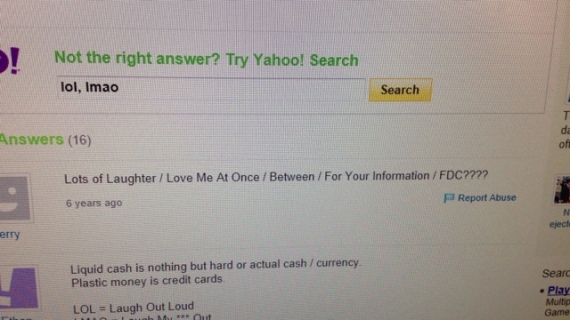The final section ” Surfin’ on Sunshine” requires a ds106 assignment from a category I have not done before…so after much thought and consideration I zeroed in on a writing assignment!
The assignment chosen……..
“Is Social Networking A Different Language?”
What’s it about?
“Some professionals believe the language we use on social networking sights is different from everyday language. They say this because of the words like g2g, ttul that we use on a consistent basis over text messaging, aim, and Facebook messenger. Write a short paper on this topic. Be sure to include some of the saying we use, which one’s you understand and don’t understand, and most of all discuss if social networking language is in fact different from our every day language.”
My life revolves around a lot of LOL ,ROFL and LMAO… Not a day passes without using (that is typing) any of these terms. The language of social networking is different as stated by some professionals. However, i would say differently…..the social networking language is the language used by “us” ,todays young generation. I have realized that is easy for me to relate to what is written online because these terms or ideas are present at some point in my life. Although maybe in person i wouldn’t say LOL out loud but it is term used online to display the emotion of the moment which i can relate to. “gtg” which mean “gotta go” is not a very foreign phrase. Any student is most likely to say “I gotta go, i have class now” almost everyday.
The social networking language is just our everyday language abbreviated (maybe a lil too much) so that we can type less! ![]() Afterall given the time we spend online social networking we would have to bear with finger/hand aches along with the ever increasing back pain! However, like i said it would be pure greek if you are not someone who is aware of how todays generation speak. I mean i had to give my dad a list of what each term meant once!
Afterall given the time we spend online social networking we would have to bear with finger/hand aches along with the ever increasing back pain! However, like i said it would be pure greek if you are not someone who is aware of how todays generation speak. I mean i had to give my dad a list of what each term meant once!
Now a list of common social networking phrases:
- LOL- Laugh out loud
- Rofl – Rolling on the floor laughing
- lmao – laugh my a** out
- gtg – gotta go
- ttul – talk to you later
- tc – take care
- nm – nothing much
- sup – whats up
- fml – f**** my life
- cuz – because
- btw – by the way
- stfu – shut the **** up
- u – you ( some go overboard with spelling it yew)
- r – are
- wtf – what the ****
- wth- what the hell
- n – and
- watever – What ever!
- and sometimes omit the vowels while typing sentences or phrases/words!
Thats all i can think of for the moment!
while making that list i realsied the beautiful language we surrounded by everyday! LOL ![]()
Apart from ruining everyones spelling knowledge this whole new abbreviated vocabulary i would call is just made for convenience and a way to relate to life i guess! ![]()
I so dont get what those new faces made using punctuation marks mean and also “smh”! I know all i need to do is google but then yea watevr!



